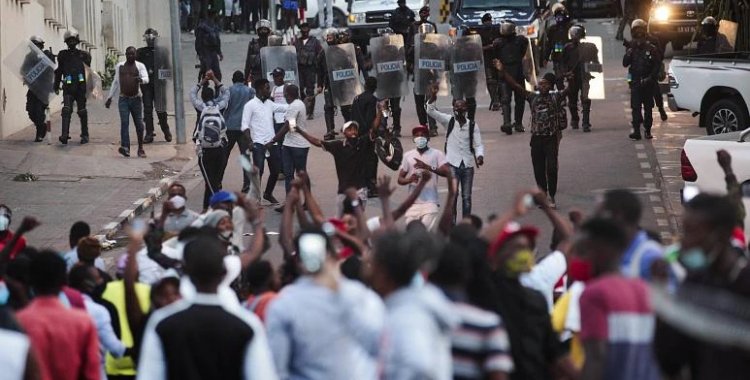The US State Department document, which analyzes the human rights situation in 200 states, presents a long list of abuses recorded in Angola, namely by government officials.
These abuses include enforced disappearance, cases of cruel, inhuman or degrading treatment or punishment by government security forces, harsh and threatening prison conditions, arbitrary detention, political prisoners or prisoners, severe restrictions on freedom of expression and the press, including violence, threats of violence or unjustified detention against journalists and criminal defamation laws.
The vast list also includes interference with the freedom of peaceful assembly, serious acts of corruption, lack of investigation and accountability for gender-based violence and crimes involving violence or threats of violence against lesbian, gay, bisexual, transgender and intersex people.
The report's authors note that "the Government has taken significant steps to identify, investigate, prosecute and punish officials who have committed abuses, as well as those who have been involved in corruption."
But they concluded that "accountability for human rights abuses was limited due to a lack of checks and balances, lack of institutional capacity, a culture of impunity and government corruption."
The report, presented on Tuesday by US Secretary of State Antony Blinken, states that "civilian authorities maintained effective control over security forces", indicating that "there were credible reports that members of the security forces committed some abuse".
And he recalls the situation recorded on January 30, in the village of Cafunfo, "an area rich in diamonds in the province of Lunda Norte", when "300 individuals armed with clubs, machetes and firearms tried to forcefully enter a police station".
"This prompted local police to use deadly force resulting in six deaths, 20 injuries and more than two dozen arrests. Some non-governmental organizations (NGOs) and media sources framed the attack as a peaceful protest against lack of access to water, education and social services and reported much higher (unsubstantiated) death numbers".
"The group was organized by the Lunda Tchokwe Protectorate Movement, which seeks independence for the region. The government viewed the confrontation as an armed insurrection and justified the use of force in self-defense," the document continues.
The authors write that, following these clashes between protesters and security forces in Cafunfo, "there were several reports of missing persons".
Opposition parties reported "the disappearance of 10 people", Amnesty International released "unconfirmed reports alleging that many missing activists were killed and their bodies thrown into the Cuango River" and "a respected journalist who visited Cafunfo between March and Junho, reported the disappearance of six people involved in the confrontation".
On torture and cruel treatment or punishment, the report gives accounts of "beatings and other abuses, both on the way and inside police stations, during interrogations".
"The government recognized that members of the security forces sometimes used excessive force when apprehending individuals."
The document also points out to the security forces the use, on certain occasions, of "excessive force when they applied restrictions to face the covid-19 pandemic", noting that "the Government held the security forces responsible for these abuses in several cases and provided some training to reform the security forces".
Regarding conditions in prisons and detention centers, they are presented as "harsh and threatening due to overcrowding, lack of medical care, corruption and violence".
"The prisons had a total capacity of 21,000 inmates, but held approximately 25,000 inmates, of which approximately 10,000 were held in pre-trial detention."
In the chapter on freedom of expression, this report indicates that "the government did not always respect this right".
"State media continued to be the main source of news and generally reflected a pro-government view."
People have increasingly opted to use "private media and social media platforms to openly criticize government policies and practices".
The coverage of corruption cases was "the main reason for the attacks against journalists, which took place with impunity".
In this regard, the authors indicate that the Government "effectively" implemented the law against corruption by government officials, recalling that it "fired and prosecuted cabinet ministers, provincial governors, senior military officers and other officials for corruption and financial crimes".
"There were numerous reports of government corruption during the year. The Attorney General's Office continued corruption investigations and brought criminal charges against several officials. However, official impunity and uniform enforcement of anti-corruption legislation continued to be a serious problem", reads in the report.







